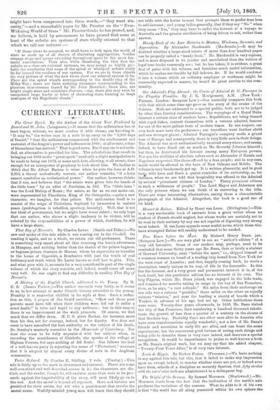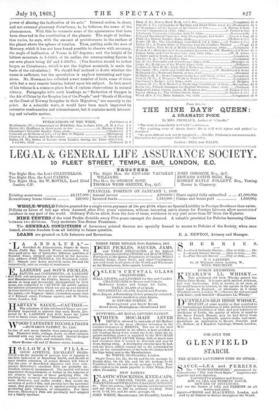The Origin* of the Seasons. By Samuel Mossman. (Blackwood.) —Mr.
Mossman starts from the fact that the inclination of the earth's axis produces the variations of the seasons. What he adds to it of his own is that "the world has all along possessed within its own sphere the
power of altering the inclination of its axis." Internal action, in short, and not external planetary disturbance, is, he believes, the cause of the phenomenon. With this he connects some of the appearances that have been observed in the constitution of the planets. The angle of inclina- tion varies, he says, with the amount of protuberance in the surface of the planet above the sphere of rotation. Thus, patting aside the case of Mercury, which it has not been found possible to observe with accuracy, the angle of inclination of Venus is 49° degrees; and the height of its loftiest mountain is 1-144th of its radius, the corresponding figures in our own planet being 23° and 1-1017th. (The fraction should be rather larger, as Chimborazo, which is not the highest mountain, is made the basis of the calculation.) We should feel inclined to doubt whether the cause is sufficient, but the speculation is anyhow interesting and inge- nious. Mr. Mossman has collected a vast number of facts, some of them with but a very remote bearing indeed upon his subject. In fact, much of his volume is a common-place book of curious observations in natural history. Paragraphs with such headings as "Reduction of Oxygen in the Air of China by the Respire' ion of the People," and "Shoals of Herring on the Coast of Norway Irregular in their Migration," are scarcely to the point. As a scientific work, it would have been much improved by extensive condensation and retrenchment, but it contains much interest- ing and valuable matter.































 Previous page
Previous page